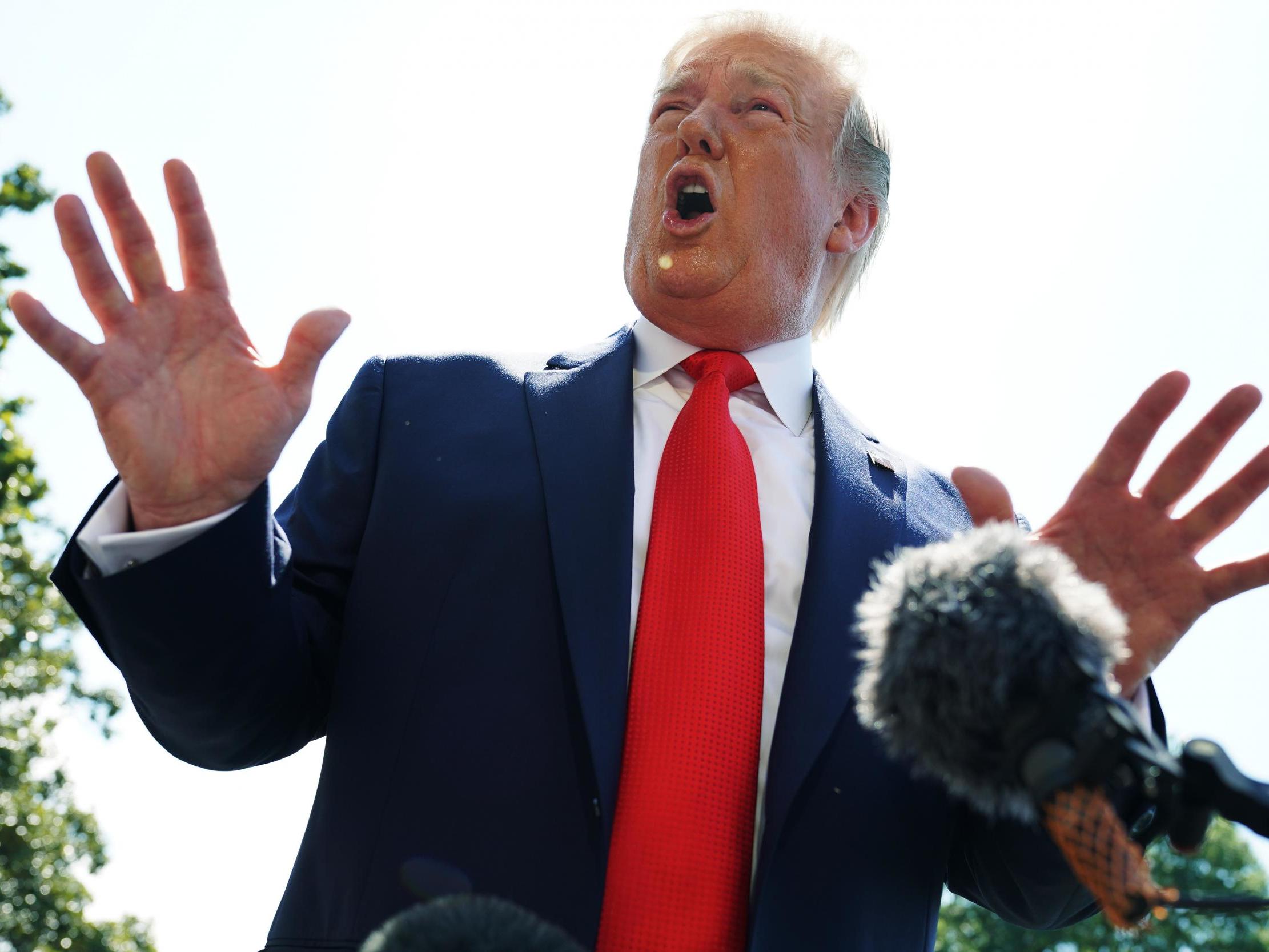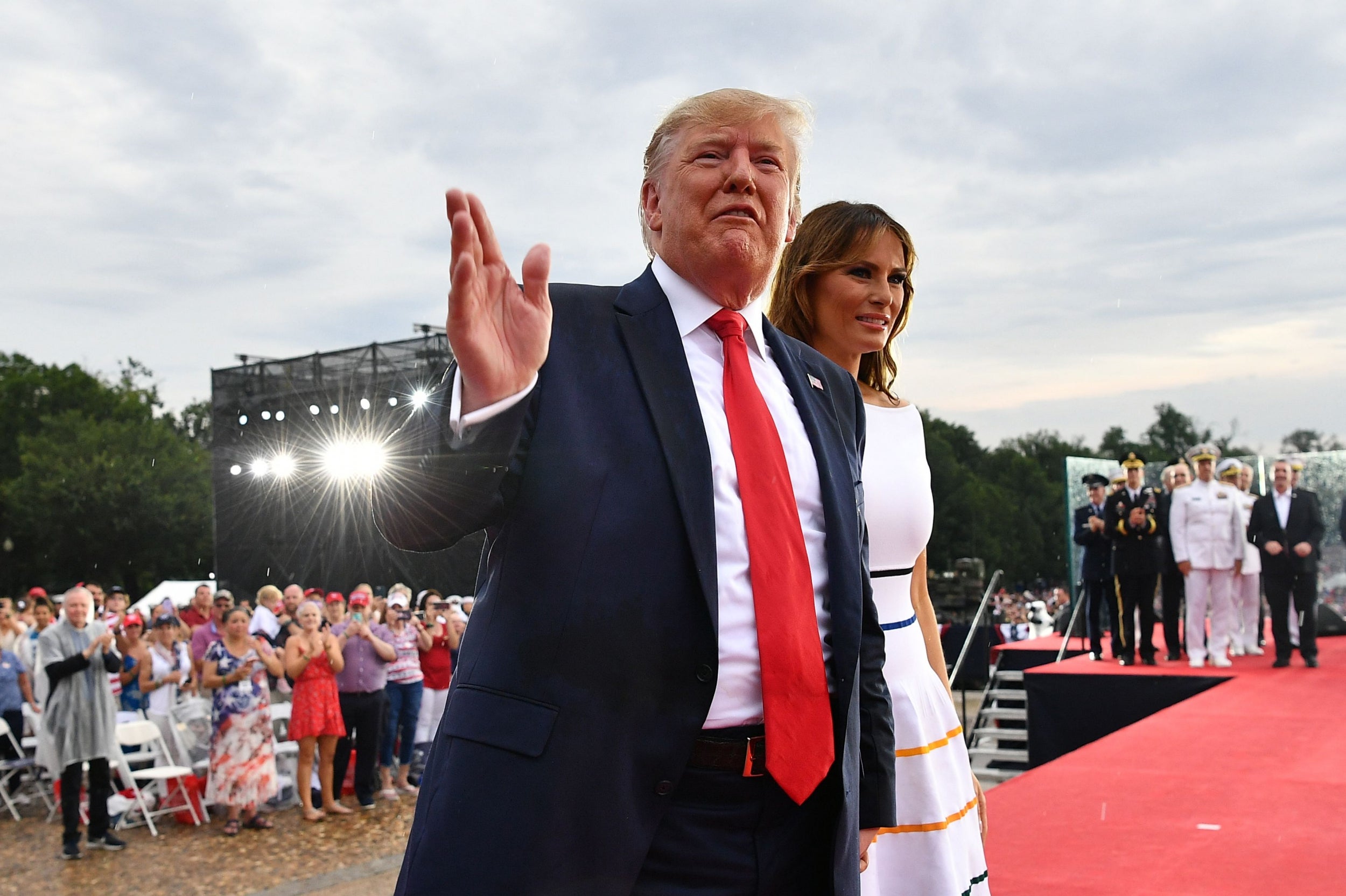Majority of Americans say Trump is 'un-presidential' despite highest approval ratings yet
American people remain sharply divided along race, gender and geographical lines ahead as the 2020 campaign begins

Your support helps us to tell the story
From reproductive rights to climate change to Big Tech, The Independent is on the ground when the story is developing. Whether it's investigating the financials of Elon Musk's pro-Trump PAC or producing our latest documentary, 'The A Word', which shines a light on the American women fighting for reproductive rights, we know how important it is to parse out the facts from the messaging.
At such a critical moment in US history, we need reporters on the ground. Your donation allows us to keep sending journalists to speak to both sides of the story.
The Independent is trusted by Americans across the entire political spectrum. And unlike many other quality news outlets, we choose not to lock Americans out of our reporting and analysis with paywalls. We believe quality journalism should be available to everyone, paid for by those who can afford it.
Your support makes all the difference.A majority of Americans continue to think Donald Trump is "unpresidential" despite his approval ratings hitting the highest point of his time in office, a new poll has found.
The survey highlights the degree to which Mr Trump has a narrow but real path to re-election. His approval rating on most issues is net negative, and more than six in ten Americans say he has acted in ways that are un-presidential since he was sworn into office.
Still, roughly one-fifth of those who say he is not presidential say they approve of the job he is doing, aided by a strong economy and perceptions that he has dealt with it effectively.
He runs even against four possible Democratic nominees in hypothetical general-election match-ups. He trails decisively only to former vice president Joe Biden.
Mr Trump's approval rating among voting-age Americans stands at 44 percent, edging up from 39 percent in April, with 53 percent saying they disapprove of him, the Washington Post-ABC News analysis found.
Among registered voters, 47 percent say they approve of Trump while 50 percent disapprove. In April, 42 percent of registered voters said they approved while 54 percent said they disapproved.
More than a year before the general election and long before the Democrats will select their nominee, the 2020 contest is playing out against the backdrop of an electorate deeply divided over the president, with a small percentage of registered voters up for grabs.
Both Democrats and the president enjoy solid bases of support, but more Americans say it is extremely important that Mr Trump not win re-election than those who say it is extremely important that he is re-elected.
The survey highlights significant differences between women and men in their candidate preference, a continuation of a trend that has been evident throughout Mr Trump's presidency.
Those gender differences shaped the outcome of the 2018 midterm elections, when Democrats captured the House with strong support among women.
In the new survey, men clearly favour Mr Trump against four of five potential Democratic challengers, although they are evenly divided over a Biden-Trump contest, while women back all five by strong margins.
The economy is the lone issue in the survey where Trump enjoys positive numbers, with 51 percent saying they approve of the way he has dealt with issues. A smaller 42 percent disapprove of his handling of it, down slightly from 46 percent last October.

Asked how much credit Mr Trump deserves for the state of the economy, 47 percent say a "great deal" or a "good amount," while 48 percent say he deserves "only some" or "hardly any."
When asked the same question in a January 2018 survey, a smaller 38 percent of Americans gave him credit for the economy while 56 percent said he deserved little or none.
On the eight other issues measured, Mr Trump gets negative ratings, ranging from a net negative of seven points on taxes to a net negative of 33 points on climate change.
More than half of all Americans disapprove of his handling of immigration, health care, abortion, gun violence and "issues of special concern to women."
The survey was conducted while Mr Trump was attending a meeting of world leaders in Japan, where trade tensions with China were eased.
It matched the US leader against five possible Democratic nominees: Mr Biden, Bernie Sanders, Kamala Harris, Elizabeth Warren and South Bend, Indiana, Mayor Pete Buttigieg.
Among the broader pool of voting-age adults, all five Democrats hold at least a slight advantage over Mr Trump.
The president's hardcore base includes 21 percent of registered voters who support him against any of the five possible Democratic challengers tested and who say it is "extremely important" that he be re-elected. That rises to 31 percent when those who say it is "very important" that he win a second term are added to those solid Trump supporters.
Mr Trump wins majority support among white voters, but he does far better with those who do not have college degrees than those who do, a pattern that emerged strongly in the 2016 election and continues to define the political divisions today.
Non-white voters favour all Democrats by a wide margin over Mr Trump; 76 percent of all nonwhite voters say they would support Mr Biden if the election were held today, as would 85 percent of African American voters.
There is also a strong urban-rural split, with potential Democratic challengers enjoying big margins among urban voters and Trump holding sizeable margins among those who live in rural and small-town areas.
As what happened in 2016, the geographic battle in 2020 will centre on the suburbs: In the head-to-head comparisons, Mr Biden leads slightly among suburban voters. Mr Trump is competitive with the other Democrats tested in suburban areas.
Overall, the top issues for Americans as the 2020 election nears are the economy, health care and immigration. Foreign policy, gun violence, taxes, issues of special concern to women and abortion follow behind. Climate change trails the others - but still over half say it's at least "very important."
This Washington Post-ABC News poll was conducted by telephone from 28 June to 1 July among a random national sample of 1,008 adults, with 65 percent reached on cellphones and 35 percent on landlines.
Results from the full sample have a margin of error of plus or minus 3.5 percentage points; the error margin is four points among the sample of 875 registered voters.
The Washington Post
Join our commenting forum
Join thought-provoking conversations, follow other Independent readers and see their replies
Comments